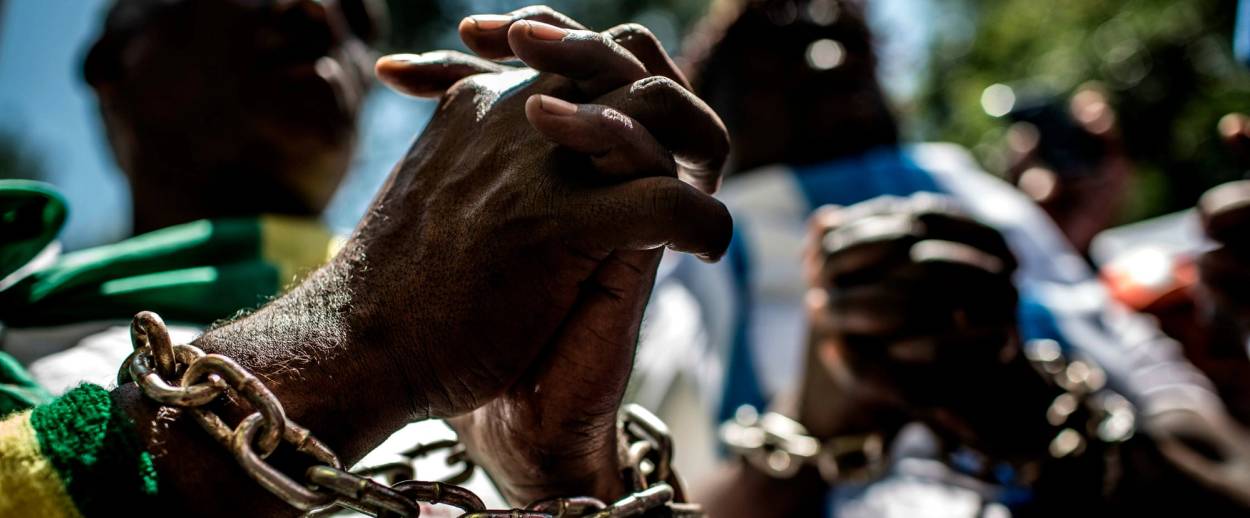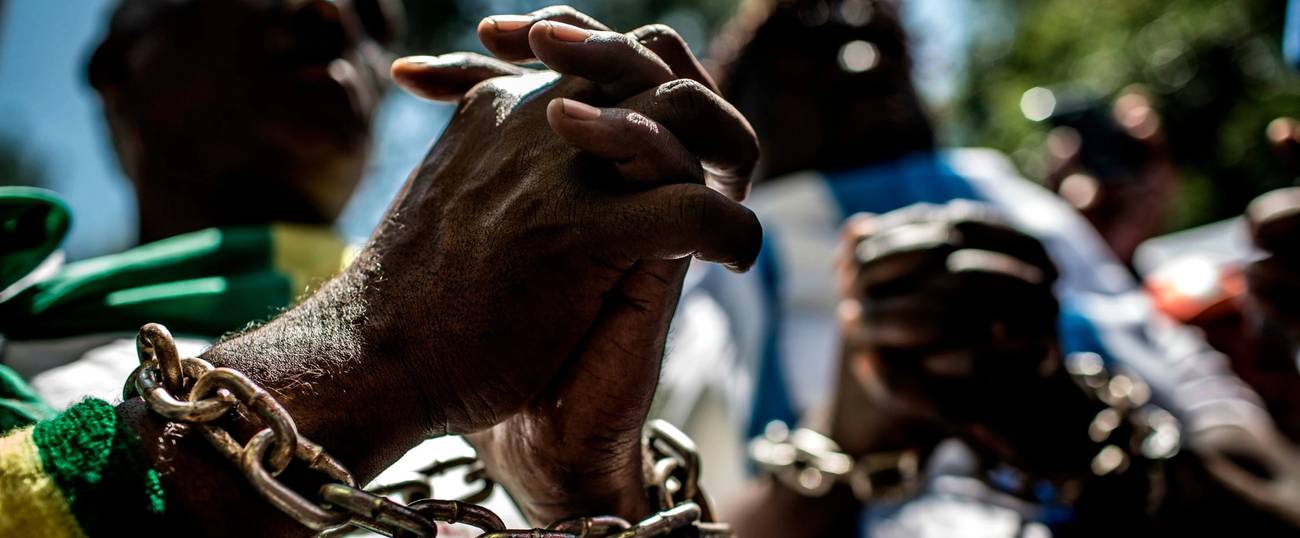As Passover Nears, Let’s Not Forget Farrakhan’s Shameful Stance on Slavery
As black Africans were being sold as chattel, the preacher refused to come to their aid




In 1995, as Research Director of the American Anti-Slavery Group, I co-authored a New York Times op-ed with Mohammed Athie, an African Muslim refugee, that first brought broad national attention to the plight of black chattel slaves in North Africa. In Sudan, for decades, as part of a war waged by the Arab north against the black, mostly Christian south, militia armed by Khartoum stormed African villages, killed the men and captured the women and the children. These served their masters as goat-herds, domestic servants, and sex-slaves. In Mauritania, Arab Berbers who had conquered the area centuries before had always kept African slaves, even though these were Muslims. As our Times piece explained, Western rights groups had thoroughly documented human bondage in these two countries, but did next to nothing to marshal their constituencies to act. No one was trying to free the slaves.
As interest in the issue grew, especially in the black press, Mohammed and I were invited on PBS’s Tony Brown’s Journal, a popular news show where we described our experience and research. We cited reports on current day slavery from Amnesty International, Human Rights Watch, and the State Department in Sudan, Mauritania, and Libya.
Farrakhan’s Nation of Islam immediately demanded to have its spokesperson—Akbar Muhammed—come on the show with a different view. Akbar claimed this was all a “big lie,” part of a Jewish conspiracy against Minister Farrakhan. Akbar was particularly upset about our mention of human bondage in Libya; It turned out that he was Farrakhan’s emissary to that country. According to the Chicago Tribune’s Clarence Page, Khadafi had loaned Farrakhan $5 million in 1984 and later promised to give the Nation of Islam a billion dollars for “Muslim causes” in America which, Clarence Page suggested, was what kept Farrakhan mute on African slavery.
Meanwhile, Athie and I had formed a modern-day American abolitionist campaign consisting mostly of Sudanese and Mauritanian refugees in New York who were disappointed with the response of the human rights community to the plight of their brothers and sisters in Africa. We sought to recruit American blacks to help free African slaves, and we got traction. Sam Cotton, a black journalist at New York’s African-American paper, The City Sun, researched the topic and published a series on African slavery under a front page headline: “Arab Masters, Black Slaves.” Sam began to tour black communities in Chicago and Detroit. After judging the evidence, the NAACP adopted a resolution to come to the forefront of the fight to liberate the slaves.
Finally, in March of 1996 Farrakhan was cornered at a news conference and asked about his stance on Sudanese slavery. As reported in the New York Times, Farrakhan grew emotional: “Where is the proof? If slavery exists, why don’t you go as a member of the press, and you look inside Sudan, and if you find it, then you come back and tell the American people what you found?”
The Baltimore Sun took up the challenge. They sent two reporters into Sudan where they bought two young African slave boys from an Arab middleman. Their report ran as a series in the Sun and was nominated for a Pulitzer Prize.
A few months later, Dateline NBC ran a feature story on Sudan that included footage of slaves, raids, and middlemen. Host Jane Pauley introduced the segment—the first national television coverage of slavery from on the ground in Sudan—by playing a video clip of Farrakhan’s angry challenge.
Leaders of the south Sudanese peoples’ struggle for liberation were not amused. Years before, they had sought out Farrakhan and asked for his help. They reasoned that he, more than any other African American, could help them stand against the Arab onslaught and free black slaves. In April of 1994, they met with him, and got his promise that if he had to choose between his religion and his race, he would choose his race.
But he did not. And he does not.
Whatever one thinks about Farrakhan’s role as a liberator of black people, it ends at the waters’ edge. In Africa, for over 20 years, Louis Farrakhan has sided with those who have murderously oppressed black people. In every African conflict that pits blacks against Muslims, Farrakhan has sided with the Muslims or remained silent, even when Muslims were murdering blacks. Even when they enslaved blacks. Even today, when Africans are slaves, having been captured, bought and sold by Muslims in Sudan, Mauritania, Libya, and Nigeria, Farrakhan remains mum.
There will be Jews who will hesitate to bring this up in their fight against Farrakhan. They will be embarrassed to be seen as having mixed motives. And surely, they will be accused, as we were, of “using” slavery for their own purposes. The solution to that is to join those who are fighting to free the slaves. And to remember that the truth is the truth. We are commanded to say it, especially about human bondage. Especially on Passover.
Charles Jacobs is president of the American Anti-Slavery Group. In 2000, he received Boston’s Freedom Award from Coretta Scott King for his work in helping to liberate thousands of Black slaves in Sudan. He holds a doctorate in Education from Harvard University.